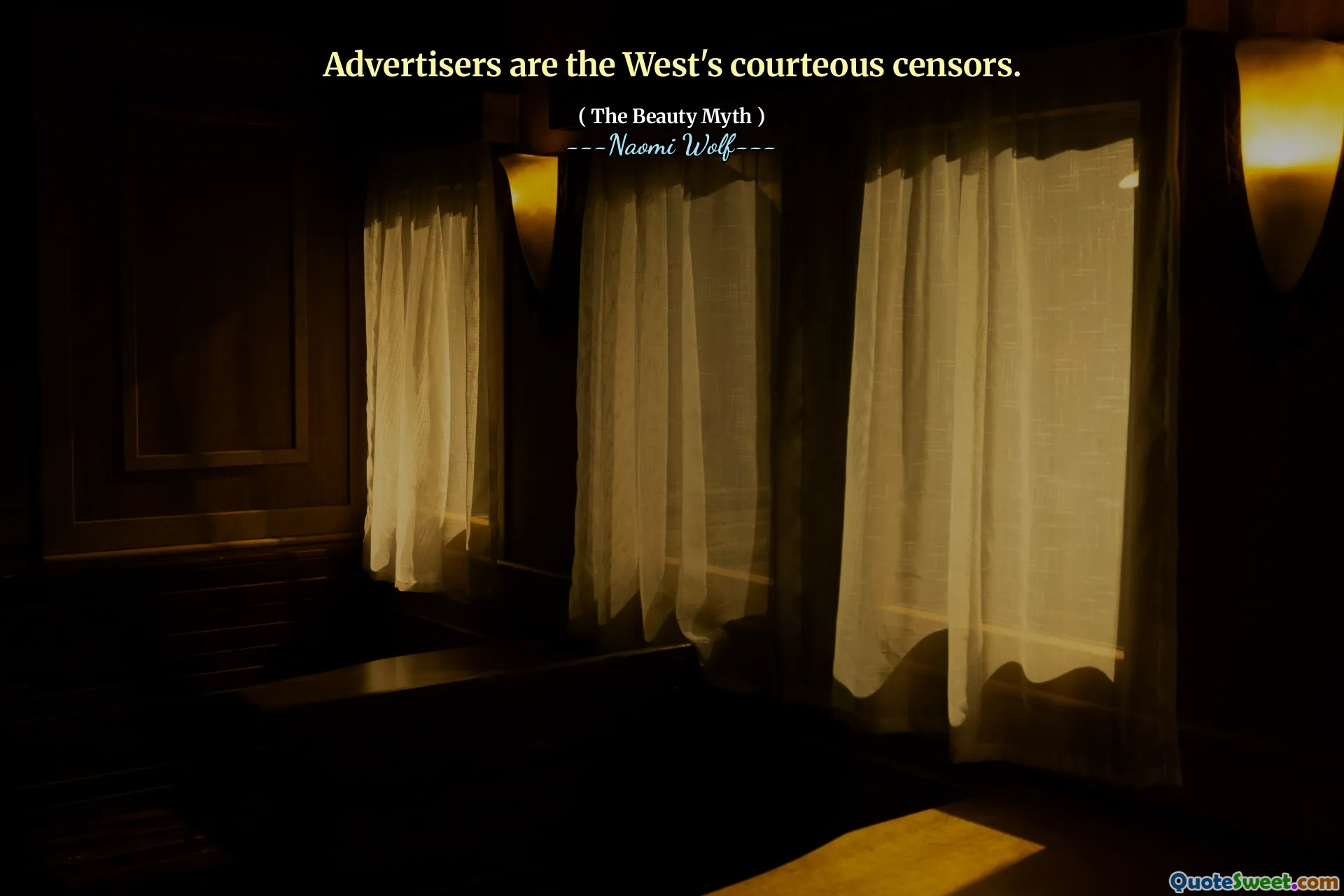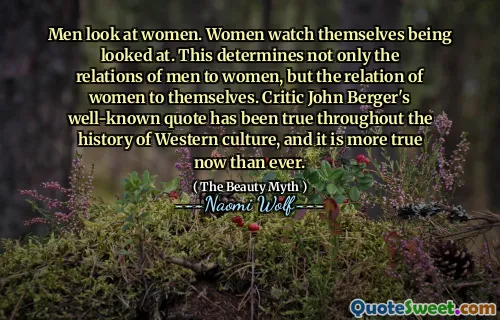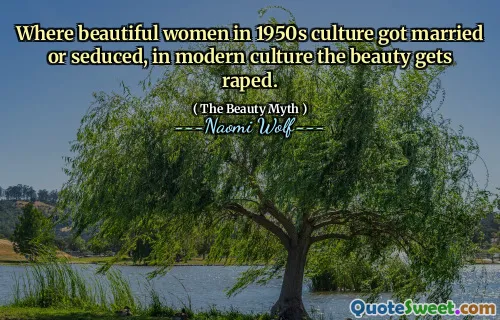
Advertisers are the West's courteous censors.
This quote suggests that advertisers in Western societies act as subtle gatekeepers of cultural norms and values. Instead of overt censorship, their influence shapes perceptions and behaviors in a manner that appears polite and non-coercive, yet powerful. Advertising has become an integral part of daily life, subtly embedding messages that define ideals of beauty, success, happiness, and social status. By choosing what to promote and how to present products or lifestyles, advertisers can reinforce societal standards and suppress alternatives that challenge the status quo. This phenomenon aligns well with themes explored in Naomi Wolf's (The Beauty Myth), where societal pressures and industry standards conspire to uphold particular ideals, especially concerning femininity and beauty, often at the expense of authenticity and individual freedom. Advertisers thus serve as a form of soft censorship—they shape cultural narratives without the overt control traditionally associated with censorship. This influence can maintain social hierarchies and suppress dissent by normalizing certain images and lifestyles, making them appear desirable or inevitable. The 'courtesy' in their role is deceptive; it suggests consent and choice, masking the underlying power dynamic at play. Recognizing this influence encourages critical thinking about media consumption and the messages we accept as normal. It forces us to question how much of our worldview has been shaped by these commercial interests under the guise of entertainment or consumer convenience. Ultimately, advertising not only promotes products but also molds societal values, often to the benefit of those in power, fitting seamlessly into the fabric of cultural censorship with a polite veneer that makes it almost invisible.








